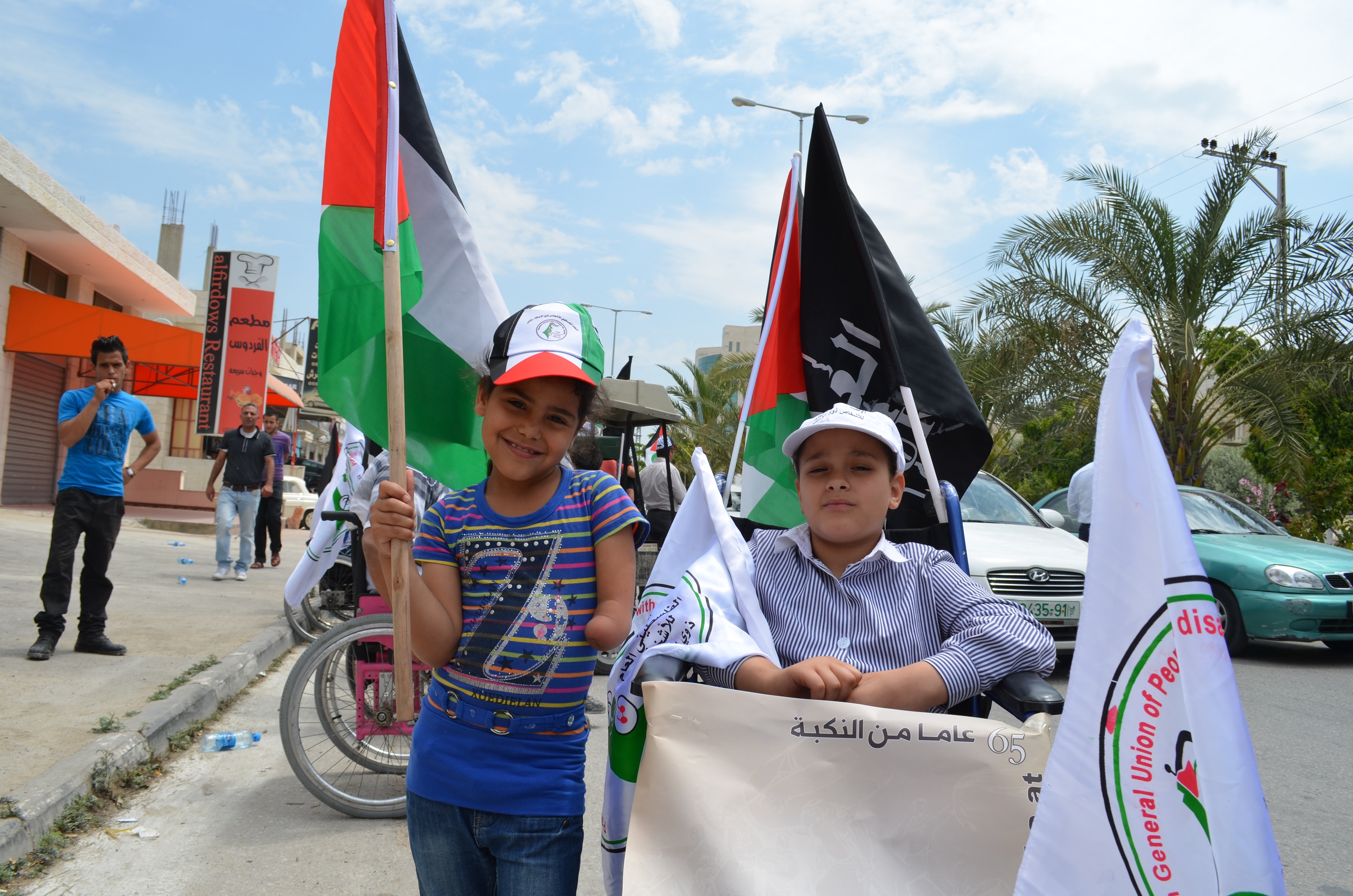Tag: Tulkarem
-
Photo essay: March through Nablus and Tulkarem commemorates the Nakba
13th May 2013 | International Solidarity Movement | Nablus and Tulkarem, Occupied Palestine By Team Nablus Today, at around 8am, over thirty people from the Palestinian General Union of People with Disability marched through the city of Nablus to commemorate the 65th anniversary of the Nakba. After the march, a bus drove participants to Tulkarem…
-
Army Invades three Tulkarem towns
30 April 2012 | IMEMC Israeli soldiers invaded on Sunday the towns of Dir al-Ghsoun, Bal’a and Shewika, near the northern West Bank city of Tulkarem, installed several roadblocks and inspected the ID cards of dozens of residents. Israeli soldiers invaded on Sunday the towns of Dir al-Ghsoun, Bal’a and Shewika, near the northern West…
-
Israeli army arrests teenagers at protest north of Tulkarem
20 February 2011 | International Solidarity Movement Eight young Palestinian men were arrested by the Israeli military yesterday in the village of Deir Al Ghusun, north of Tulkarem. Three of them remain in custody, Jala Anwar, Omar Abu Safa and Sohayb Abu Shakra, all aged 17 years. The teenagers were taking part in a protest…

